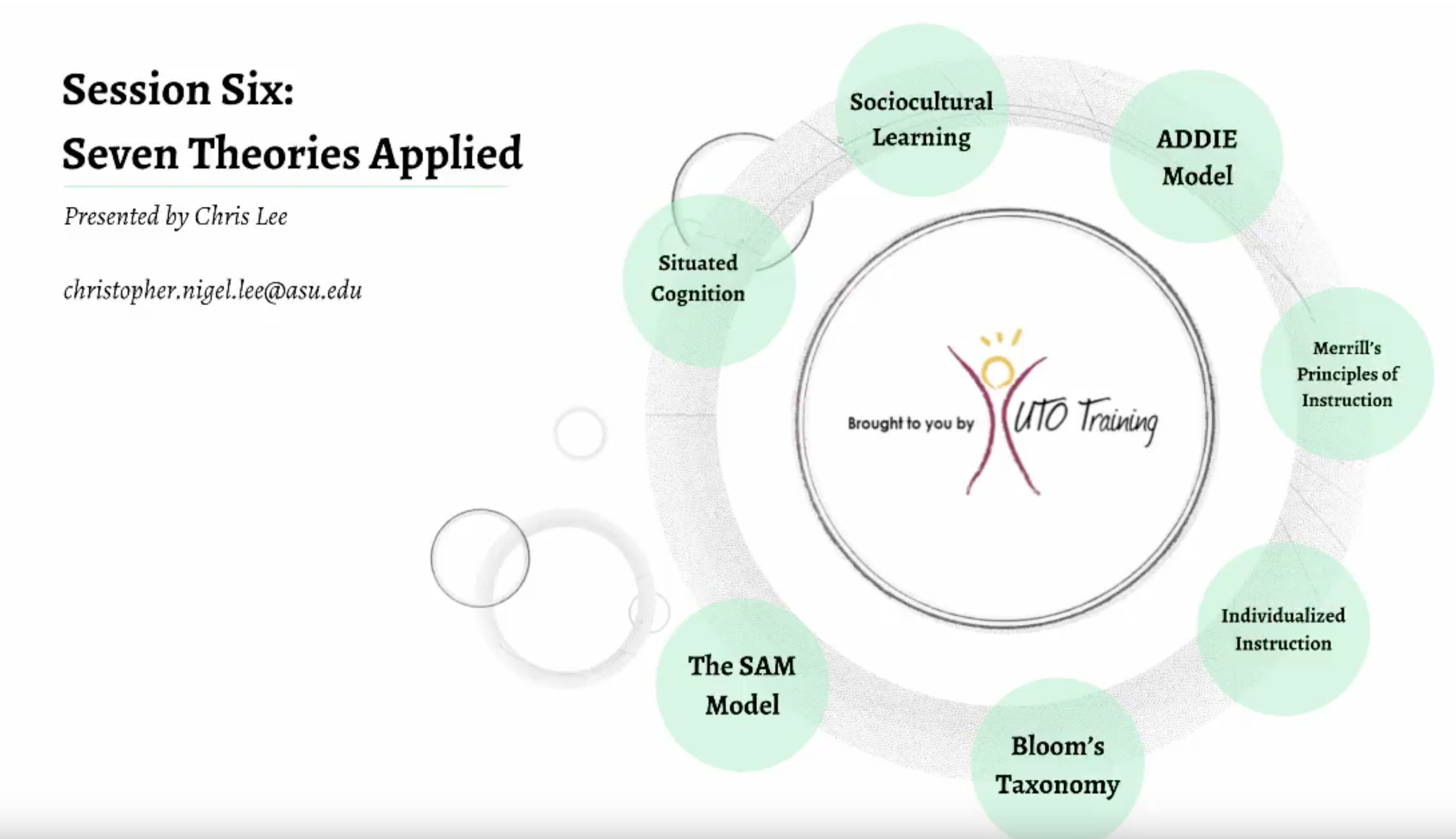
Instructional Design Models and Theories: Instructional Design Theories for Your Next Course
One of the most difficult questions for a course developer to answer is which instructional design theory or theories is best suited to the course being developed. To answer this question, it is important to be aware of the various instructional design theories available, how they might be implemented, and how they can be utilized to meet core course objectives. In this UTO Training session on Instructional Design theory and application, we will discuss seven instructional design theories that you could use to develop your next course.
Instructional design theories discussed include Situated Cognition Theory, Sociocultural Theory, The ADDIE Model, Merrill’s Principles of Instruction, Individualized Instruction, Bloom’s Taxonomy, and The SAM Model. The basics of each theory are explored and then practical approaches to applying the theory in instructional design are discussed. For questions about this training contact Chris Lee at Christopher.nigel.lee@asu.edu and check out the ASU UTO website for upcoming workshops and studio hours at http://links.asu.edu/utotraining
Leave a Comment
Your email address will not be published. Required fields are marked *